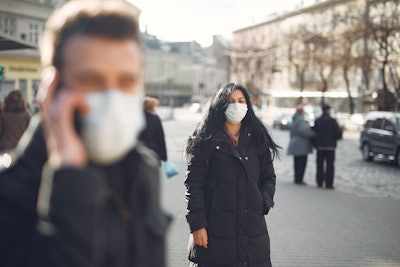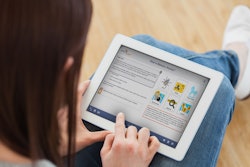
As a global health crisis potentially morphs into an economic one, Deloitte is conducting a series of biweekly surveys around the globe to better understand the interplay between personal safety and economic vulnerability as a driver of purchase decisions and consumer behavior. The first such survey titled “Deloitte Global State of the Consumer Tracker,” conducted in 13 countries during the week of April 13, 2020, queried 1,000 consumers in each country. The responses provide insight into how consumers in different countries intend to weather this dual crisis.
Key takeaways
- Health concerns generally exceed financial concerns in the U.S., with more than 50% of respondents concerned about health and nearly one-quarter of respondents worried about finances.
- Only one-third of U.S. consumers (34%) feel safe going to the store right now.
- Consumers in India and Japan show a bigger anxiety spike than the U.S.
- Millennials lead the online shopping charge in the U.S. predominantly with in-store categories such as groceries, everyday household goods and alcohol.
Health and financial concerns remain relatively high worldwide
Global angst remains elevated when it comes to personal well-being and finances.
- Health concerns are highest in China and India, the world’s two most populous countries: 89% of Chinese consumers and 79% of Indian consumers are concerned for their family’s health.
- Concern in the U.S. remains elevated: 64% are worried about the health of others; 52% about their own health.
- On average, across all countries, 42% of respondents who still had a job were concerned about losing their jobs. In the U.S., 35% of respondents are concerned about losing their job.
- Respondents in Spain and India were also the most concerned about making upcoming payments. Among Americans younger than 55, one-third were concerned about making upcoming payments.
- Forty-two percent of U.S. consumers are delaying large purchases.
Share of wallet shifting
Facing a great deal of economic uncertainty, a majority of consumers in most countries intend to curb their discretionary spending, and they may eventually look for ways to cut even their less discretionary spend to make ends meet. In fact, the survey notes that in many countries, most consumers’ net spending intent is to curb their discretionary spend over the next four weeks.
- Americans will generally spend less on discretionary items like travel, eating out and automotive fuel, but 47% would buy a non-essential item if they found a great deal.
- U.S. consumers plan to spend more on necessities such as groceries, household goods and utilities; 55% of U.S. consumers report stockpiling.
- Nearly half of U.S. consumers (48%) will pay more for convenience to get what they need.
“Health risk and economic behavior are tightly intertwined. As long as personal health and financial concerns persist, consumer spending is likely to be restrained, except for essentials. Many economies are driven by consumption, so it’s not until the public feels safe that consumers will likely return to behaviors that were only recently taken for granted and economies, in turn, return to strength. We’ll be closely monitoring these attitudes as economies begin to re-open,” says Seema Pajula, vice chairman, U.S. industries and insights leader, U.S. consumer industry leader, Deloitte LLP.
“The world over, we are observing that the concern about one’s personal health informs the feeling of safety in doing what was, up until very recently, life’s ordinary activities. This has obvious implications for retailers, restaurants, hoteliers, airlines and a host of other businesses. Clearly, people should feel safe before society returns to any level of normalcy,” says Stephen Rogers, executive director, Deloitte Insights Consumer Industry Center, Deloitte LLP.
Other Key Findings
- Despite the rapid rise of online grocery orders, online grocery remains a fraction of in-store spending intention in the U.S. Only 19% of respondents plan on purchasing groceries online in the next four weeks. This may be tempered by available supply of delivery slots versus demand.
- With regard to digital consumption:
- Sixty-two percent of Americans plan to continue streaming entertainment content over the next four weeks.
- Fifty-three percent of Americans plan to continue video conferencing with family and friends.
- Half of U.S. consumers are sticking with the name brands they trust.
- Eighty-three percent of Americans plan to “buy online pickup in store” (BOPIS) in the next four weeks.



















